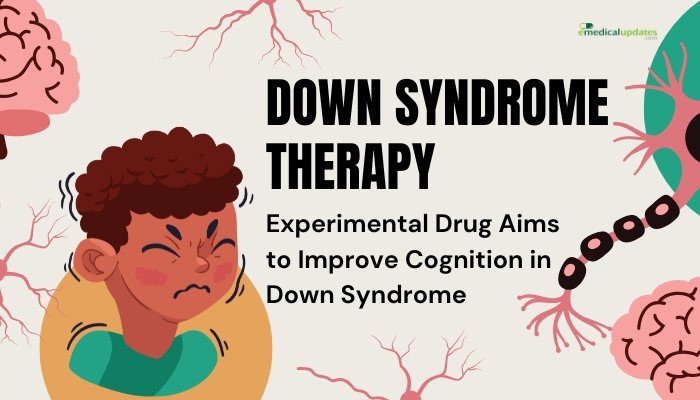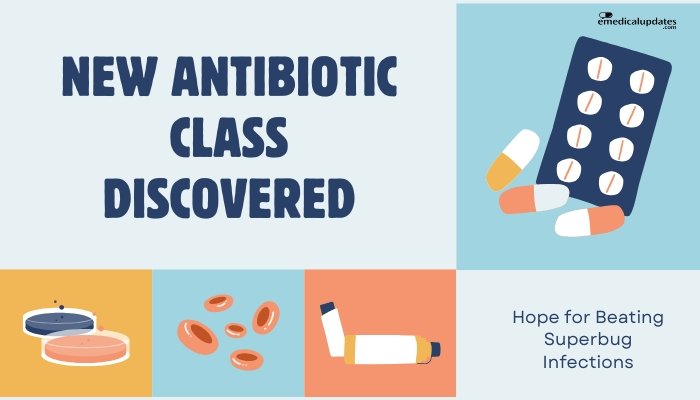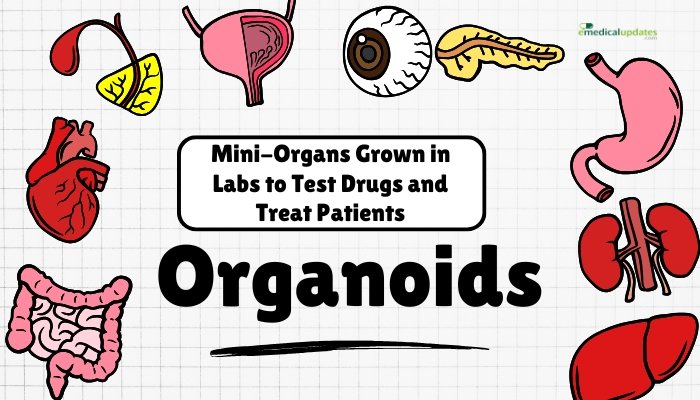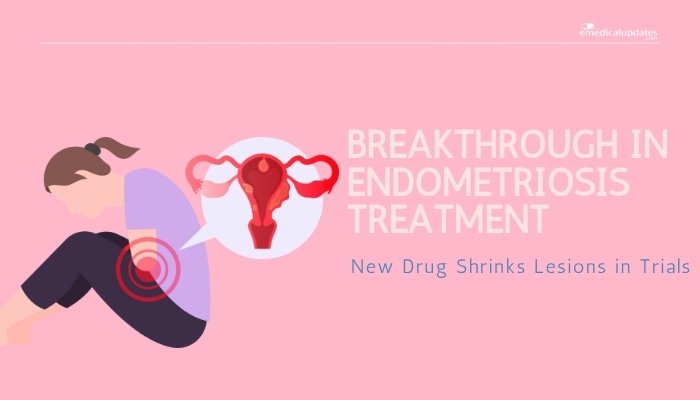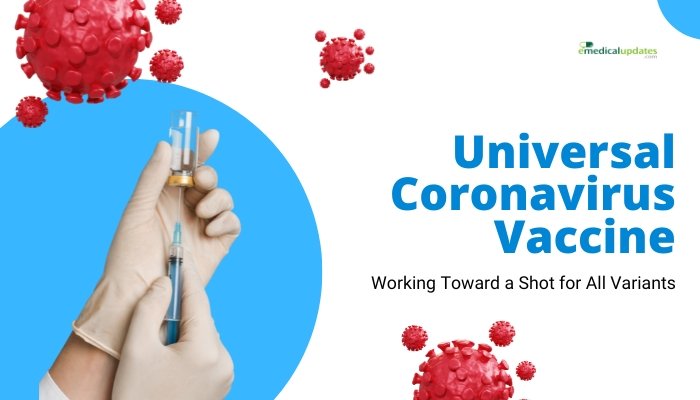Introduction
Down syndrome (DS) is a genetic condition caused by the presence of an extra copy of chromosome 21. It affects physical development, cognitive function, and can accompany various health challenges. While supportive care, therapies, and educational interventions have improved quality of life, there’s no medication specifically targeting the cognitive aspects of DS.
Now, a new experimental drug in clinical trials may help refine or enhance the brain circuits responsible for learning, memory, and daily problem-solving. Below, we explore what this therapy does, the early clinical outcomes, and the broader implications for those with Down syndrome.
Understanding Down Syndrome and Cognition
Chromosome 21 and Brain Development
- Extra Chromosome: Individuals with DS have three copies of chromosome 21 instead of two.
- Neurological Impact: This additional genetic material can alter gene expression, influencing how neurons form and communicate, leading to differences in memory, learning, and language skills.
Current Interventions
While specialized education, speech therapy, and occupational therapy help with developmental milestones, no drug specifically addresses the biological underpinnings of DS-related cognitive challenges. This unmet need drives new avenues in pharmacological research.
The Experimental Drug
Mechanism of Action
The new therapy targets brain pathways implicated in memory and synaptic plasticity—namely:
- Neurotransmitter Regulation: Balancing excitatory and inhibitory signals in regions critical for learning.
- Synaptic Plasticity Support: Encouraging formation or strengthening of neural connections, potentially fostering better memory encoding or retrieval.
Research suggests certain DS-related genes disturb these pathways. By modulating them chemically, the drug might partially restore typical function.
Delivery and Regimen
Currently, the medication is in pill or capsule form, taken daily. Dose optimization is crucial to ensure enough agent reaches the brain without causing adverse effects.
Early Clinical Trial Data
Trial Design
- Phase II or pilot studies typically recruit adolescents or young adults with DS.
- Endpoints: Tools measuring cognitive abilities (e.g., memory tasks, adaptive behavior scales), daily function, and safety markers (e.g., blood pressure, liver enzymes).
Preliminary Outcomes
So far, participants receiving the drug show modest gains in certain memory tests or attention tasks, though results are still early. Caregivers note subtle improvements in day-to-day problem-solving or communication skills, but the sample sizes remain small, and further confirmatory trials are underway.
Safety Profile
No severe adverse events reported thus far, with side effects generally mild—like headache, mild GI upset, or drowsiness. Ongoing monitoring is essential to detect rarer issues.
Potential Benefits
- Improved Independence: If the therapy significantly boosts cognitive function, individuals with DS might handle daily tasks or self-care with more ease.
- Enhanced Learning: Gains in memory or attention could translate into better academic and life skills progress.
- Psychological Positives: Greater self-confidence and social engagement if one’s ability to communicate and navigate tasks improve.
Challenges and Considerations
Complexity of DS
Down syndrome’s genetic complexity, involving many overexpressed genes, means no single therapy can “fix” or address all aspects. This drug may target only certain neural pathways, leading to partial improvements rather than a sweeping overhaul.
Maintaining Realistic Expectations
Families must recognize that while any improvement is valuable, the medication’s impact will likely be incremental. The drug is not a “cure,” and supportive therapies remain vital.
Cost and Access
Should the drug prove beneficial, questions about insurance coverage and affordability may arise. Access to a specialized therapy for a specific population can be challenging, especially without robust policy support.
Future Directions
Larger-Scale Trials
Phase III trials with broader age ranges and bigger cohorts will be critical. Confirming consistent benefits across diverse DS populations is necessary for regulatory approval and mainstream adoption.
Combination Therapies
As knowledge of DS neurobiology grows, combining a cognitive-enhancing drug with existing educational and behavioral interventions might yield greater synergy, maximizing skill development from early childhood onward.
Potential for Other Neurodevelopmental Conditions
Breakthroughs in DS cognition may inspire or inform drug development for other intellectual disability syndromes, leveraging similar mechanistic strategies.
Frequently Asked Questions
- When might the drug be available?
- If Phase III trials confirm safety and efficacy, approval might come within a few years. Timelines vary by region and regulatory processes.
- Does the therapy replace therapies like speech or occupational therapy?
- No. It’s a potential complement to existing interventions, not a substitute.
- Are improvements permanent?
- The therapy may need continuous use to sustain benefits, although long-term data is limited. Stopping medication might revert gains.
- Could it help older adults with DS?
- Research primarily focuses on younger participants, but future trials might include older individuals to see if cognitive decline can be mitigated.
- Is it safe with other medications?
- Interactions remain under investigation. Patients typically coordinate with a specialist to avoid conflicts with other drugs.
Conclusion
An experimental drug targeting the biological roots of Down syndrome–related cognitive deficits marks a pioneering step in bridging the gap between supportive interventions and direct neurobiological therapy. Early studies offer hints of improved memory, attention, and daily functioning, fueling hope for families and caregivers. However, the journey to real-world availability and coverage remains in progress, contingent on larger trials validating safety, efficacy, and consistent benefits. In the interim, the possibility of a medication specifically enhancing cognition in Down syndrome underscores a new horizon in genetic condition management—one that might, in time, enrich the lives and autonomy of countless individuals with DS and their communities.
References
-
Gardiner K, et al. (2022). “Molecular basis of cognitive deficits in Down syndrome.” Trends Neurosci.
-
Kishnani PS, et al. (2021). “Exploring pharmacologic interventions for intellectual disability in DS.” Am J Med Genet Part C.
-
NICHD (2023). “Current trials for Down syndrome cognition therapies.”
-
Lott IT, et al. (2020). “Neuropathology of Down syndrome: emerging therapies.” Nat Rev Neurol.

